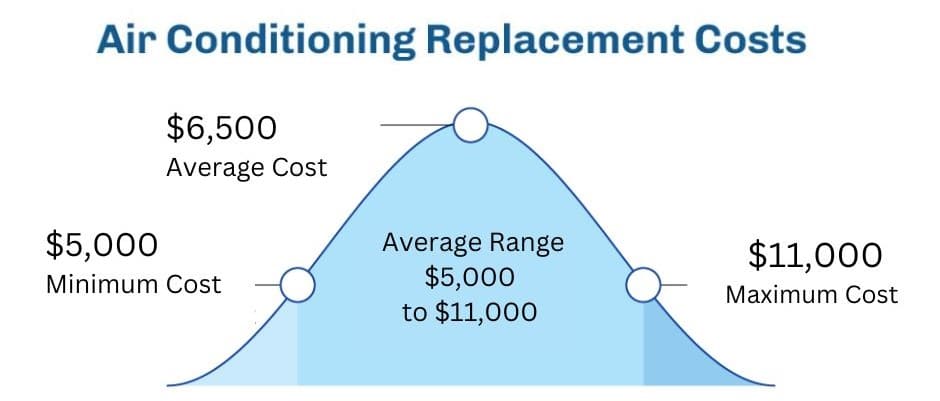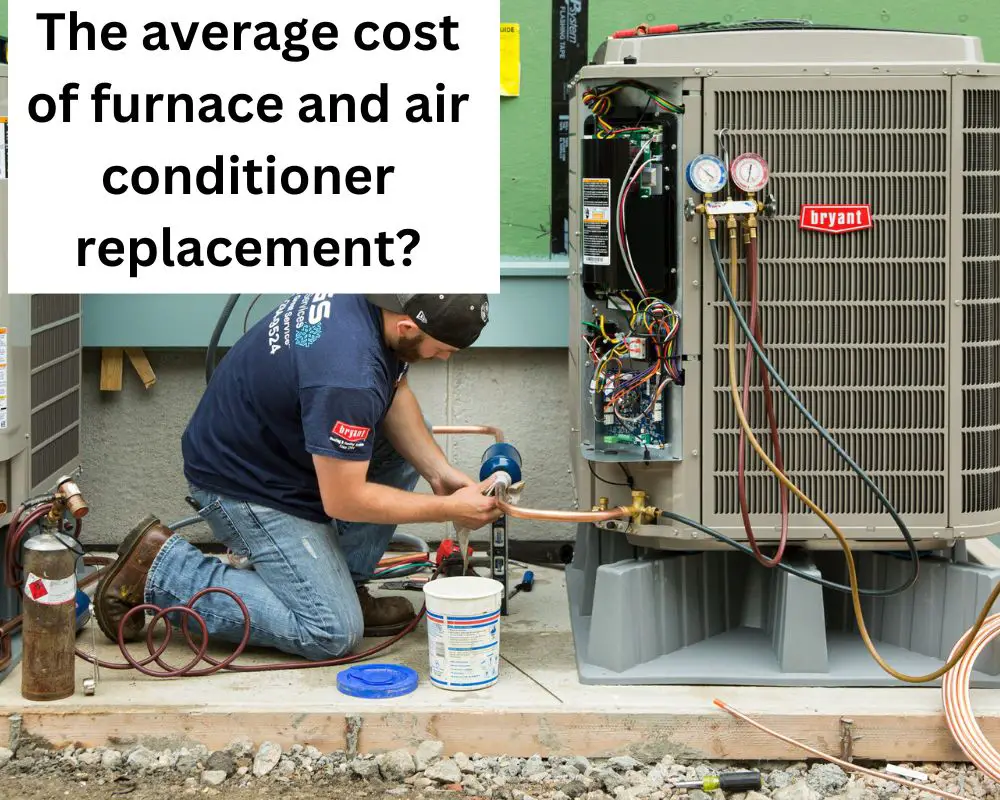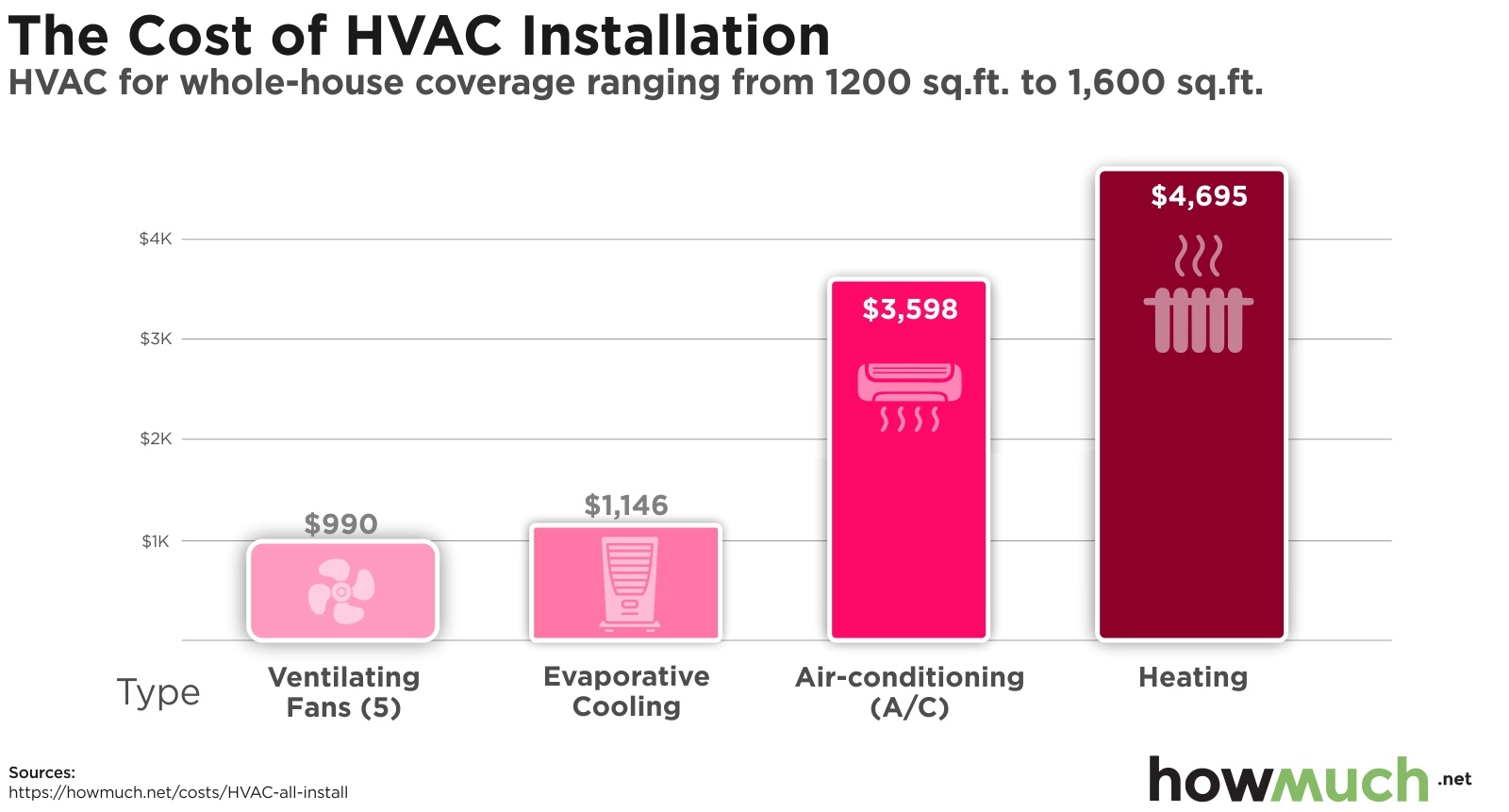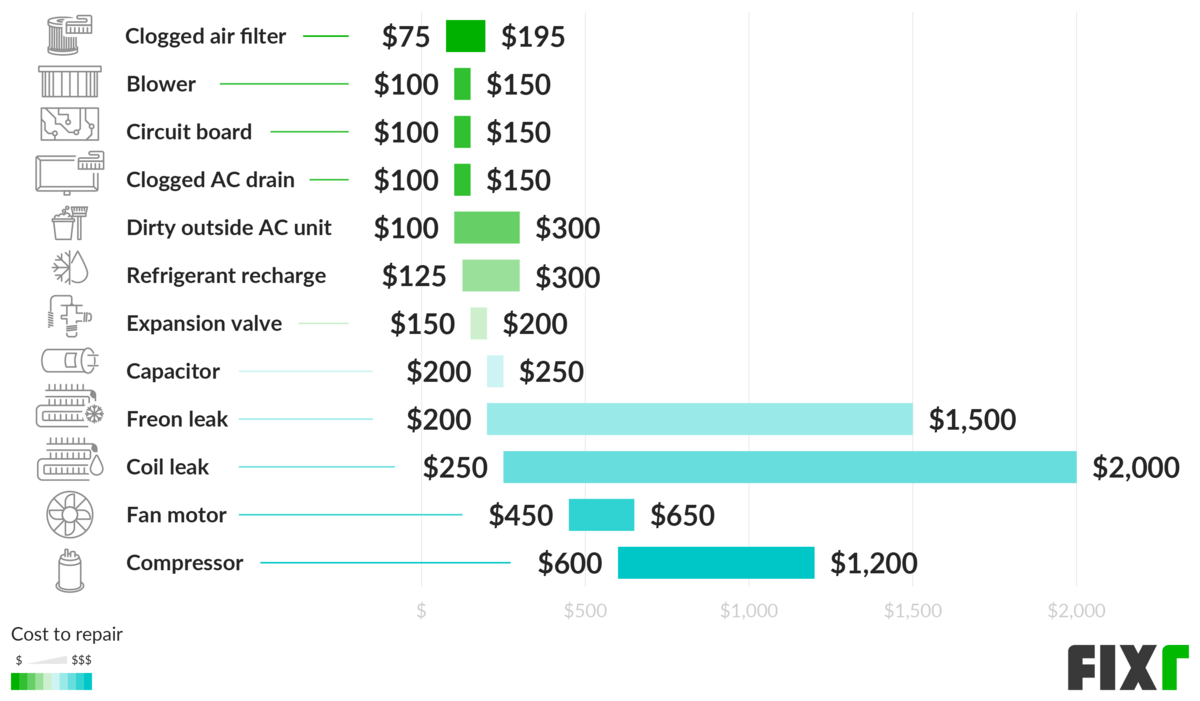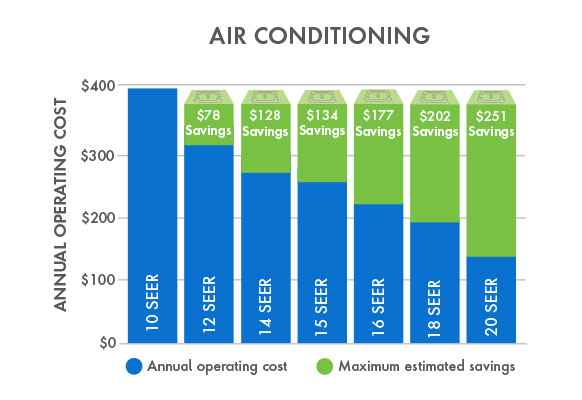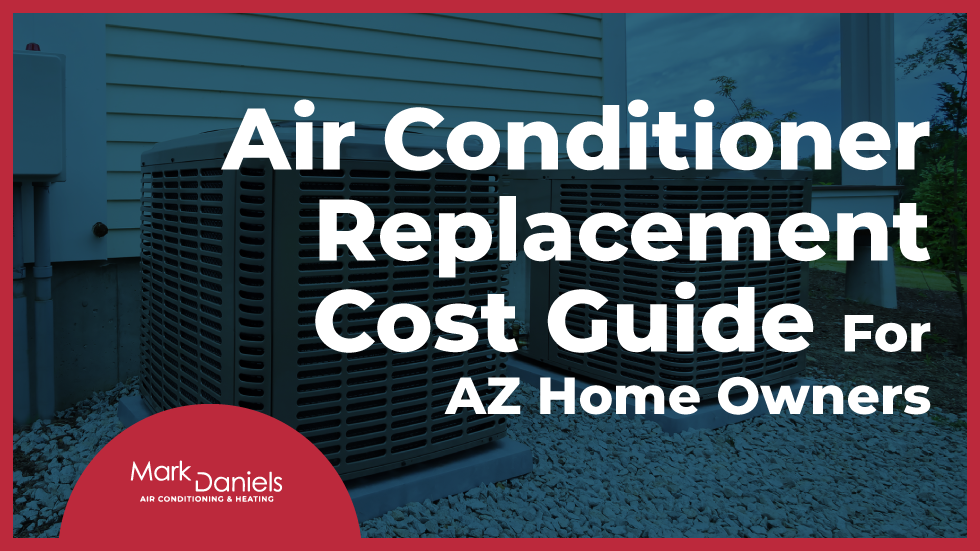What Is The Average Cost To Replace An Air Conditioner

As summer heat intensifies or when your existing unit fails, one question weighs heavily on homeowners' minds: "What is the average cost to replace an air conditioner?" The answer isn't straightforward, as several factors influence the final price. This guide breaks down the costs involved, helping you understand what to expect and how to make informed decisions.
Understanding the Factors Affecting AC Replacement Costs
Several key elements determine the price of a new AC system. These include the size of your home, the type of unit you choose, installation complexity, and regional labor rates. Let's examine each:
- Home Size and Cooling Needs: The larger your home, the more powerful the AC unit you'll need. AC capacity is measured in BTUs (British Thermal Units). A larger home requires a higher BTU rating, directly impacting the price.
- Type of AC Unit: Options range from central air conditioners to ductless mini-split systems and window units. Central ACs are generally more expensive to install but offer whole-house cooling. Ductless systems are suitable for individual rooms or zones, while window units are the most budget-friendly but least efficient for large spaces.
- Energy Efficiency (SEER Rating): The Seasonal Energy Efficiency Ratio (SEER) measures an AC's energy efficiency. Higher SEER ratings mean lower energy bills, but units with higher SEER ratings typically have a higher upfront cost.
- Installation Complexity: Existing ductwork can simplify installation, reducing labor costs. However, if new ductwork is required, or if the installation space is difficult to access, costs will increase.
- Brand Reputation and Features: Name-brand units often come with higher price tags but may offer better warranties, advanced features, and proven reliability. Consider features like variable-speed blowers, smart thermostats, and air purification systems.
- Regional Labor Rates: Labor costs vary significantly depending on your location. Metropolitan areas typically have higher labor rates than rural areas.
- Permits and Inspections: Most jurisdictions require permits for AC installations. The cost of permits and inspections should be factored into your budget.
Average Cost Ranges for AC Replacement
Keeping these factors in mind, here's a general estimate of AC replacement costs. Remember that these are averages, and your actual costs may vary:
- Central Air Conditioner (Complete Replacement): $4,000 - $12,000+ installed. This covers the outdoor condenser unit and indoor evaporator coil, plus installation.
- Ductless Mini-Split System: $3,000 - $8,000+ per zone installed. Costs can vary depending on the number of indoor units needed.
- Window AC Unit: $150 - $800+ per unit. These are the most affordable option, but not suitable for whole-house cooling.
These ranges reflect both the cost of the equipment and the cost of labor. When comparing quotes, make sure they include all necessary components and services.
Breaking Down the Costs: Equipment vs. Labor
It's useful to understand how the total cost is divided between equipment and labor:
- Equipment Costs: Typically account for 40-60% of the total cost. This includes the condenser unit, evaporator coil, refrigerant, and any necessary accessories.
- Labor Costs: Typically account for 40-60% of the total cost. This includes removal of the old unit, installation of the new unit, electrical connections, refrigerant charging, and system testing.
DIY vs. Professional Installation: Weighing the Risks and Rewards
While some homeowners might consider DIY AC installation to save money, it's essential to understand the complexities and potential risks involved.
When DIY Might Be Possible (and Safe!)
- Replacing a Window AC Unit: Straightforward and generally safe, as long as you follow the manufacturer's instructions.
- Minor Maintenance Tasks: Cleaning condenser coils, replacing air filters, and clearing drain lines are typically DIY-friendly.
When You Absolutely Need a Professional
- Central AC Installation: Requires specialized knowledge of HVAC systems, electrical wiring, refrigerant handling, and building codes.
- Ductwork Installation or Modification: Complex and requires expertise in airflow dynamics and duct sizing.
- Refrigerant Handling: Refrigerants are environmentally regulated, and improper handling can result in fines and environmental damage. Licensed professionals have the necessary training and equipment.
- Electrical Work: Working with high-voltage electricity is dangerous and should only be done by a qualified electrician.
- Any Work Requiring Permits: Permits ensure that the installation meets local building codes and safety standards. A professional can handle the permit process.
Safety First! Before attempting any DIY repairs, always disconnect the power to the AC unit. Wear appropriate safety gear, including gloves and eye protection. If you are unsure about any aspect of the repair, call a professional.
Tools You Might Need (If Attempting Minor Repairs)
- Screwdrivers (various sizes)
- Wrench set
- Pliers
- Multimeter
- Vacuum pump (for cleaning drain lines)
- Fin comb (for straightening condenser fins)
- Safety glasses
- Gloves
Troubleshooting Common AC Problems Before Considering Replacement
Before jumping to AC replacement, troubleshoot these common issues:
- AC Not Turning On: Check the circuit breaker, thermostat settings, and power switch.
- Weak Airflow: Check the air filter, ductwork for leaks, and blower motor.
- Warm Air: Check the refrigerant level, condenser coils for dirt, and compressor.
- Strange Noises: Identify the source of the noise (e.g., rattling, buzzing, hissing) and consult a professional.
- Water Leaks: Check the drain pan, drain line, and condensate pump.
Getting Multiple Quotes and Comparing Your Options
Obtain at least three quotes from different HVAC contractors. Compare the following:
- Equipment Specifications: Ensure all quotes are for comparable equipment with similar SEER ratings and features.
- Labor Costs: Understand what's included in the labor costs, such as removal of the old unit, installation of the new unit, and system testing.
- Warranty Information: Check the manufacturer's warranty on the equipment and the contractor's warranty on the installation work.
- Contractor's Qualifications: Verify that the contractor is licensed, insured, and has a good reputation.
- Customer Reviews: Read online reviews to get a sense of the contractor's quality of work and customer service.
Financing Options and Rebates
AC replacement can be a significant investment. Explore financing options such as:
- Home Equity Loans: Offer competitive interest rates and flexible repayment terms.
- Personal Loans: Can be used for any purpose and may be easier to obtain than home equity loans.
- Manufacturer Financing: Some manufacturers offer financing options through their authorized dealers.
- Government Rebates and Tax Credits: Check for federal, state, and local rebates and tax credits for energy-efficient AC units.
Extending the Life of Your New AC Unit
Proper maintenance can significantly extend the lifespan of your new AC unit:
- Regularly Change Air Filters: Dirty air filters restrict airflow and reduce efficiency.
- Clean Condenser Coils: Dirt and debris can accumulate on the condenser coils, reducing their ability to dissipate heat.
- Schedule Annual Maintenance: A professional HVAC technician can inspect your system, identify potential problems, and perform necessary maintenance tasks.
- Keep the Area Around the Condenser Clear: Ensure that there is adequate airflow around the outdoor unit.
- Use a Programmable Thermostat: Programmable thermostats can help you save energy by automatically adjusting the temperature when you're not home.
Warning Signs: When Repair Isn't Enough
Sometimes, repairs are no longer cost-effective. Consider replacement if:
- Your AC unit is more than 10-15 years old.
- You're experiencing frequent breakdowns and expensive repairs.
- Your energy bills are unusually high.
- Your AC unit uses R-22 refrigerant (which is being phased out).
Important Note: If your system uses R-22 refrigerant and needs a recharge, replacement is often the most cost-effective option, as R-22 is becoming increasingly expensive and difficult to find.
Conclusion: Making an Informed Decision
Replacing an air conditioner is a significant investment. By understanding the factors that influence the cost, exploring your options, and weighing the risks and rewards of DIY versus professional installation, you can make an informed decision that meets your needs and budget. Remember to prioritize safety and consult with qualified HVAC professionals when necessary. Don't hesitate to ask questions and get detailed explanations of all costs involved. A well-informed homeowner is best positioned to secure a fair price and a reliable, efficient cooling system for years to come. And remember, proper maintenance will extend the life of your new unit and save you money in the long run. Choosing a unit with a high SEER rating will also provide long term savings on your electric bill.
